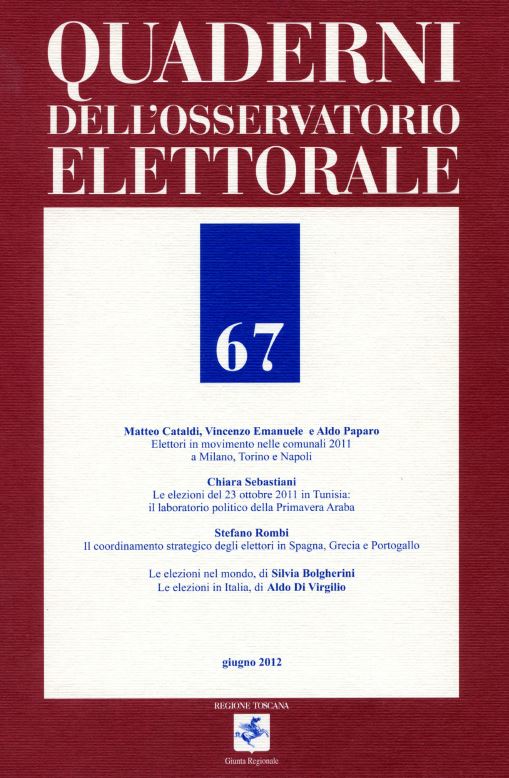Published 2012-06-30
How to Cite
Abstract
This article is based on the concept of strategic coordination as formulated by Gary Cox. The first part is a theoretical one: it deals with the theory behind the studies on electoral strategic coordination. The second part, more empirical, examines the voters’ coordination in form of strategic voting. The research encompasses three southern European countries – Spain, Greece and Portugal – in which operate a reinforced proportional electoral system. So, the question is: in what extent does this kind of electoral system stimulate strategic voting? To answer it, an analysis of electoral results at district level is provided. And, in particular, the article focuses on three indicators: the effective number of electoral parties; the percentage of waste votes; the percentage of votes cast for the two main parties. It concludes by discussing the results and by attempting to explain the differences between Spain and the other two countries.


